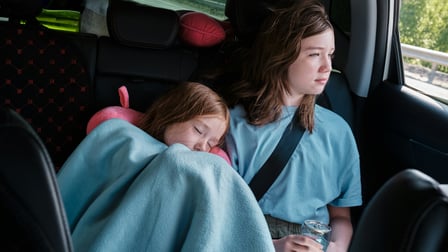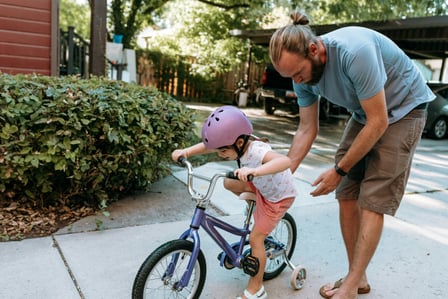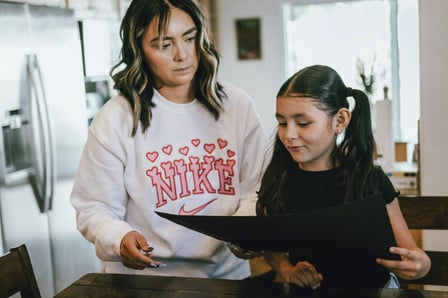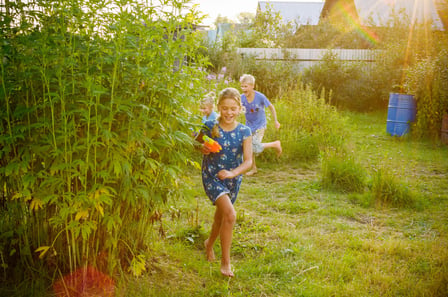Foster care
Join the village
Your village is your safety net. They are there to provide the time, support and resources you need to get through the hard times. But what if you don’t have one?
All young people deserve to thrive, regardless of their background or the complexity of their needs. Everyone is entitled to the care and kindness of a community.
CASPA is dedicated to bridging the gap, and inspiring and supporting individuals to come together and be the village that every family needs.
Foster care
Join the village
Your village is your safety net. They are there to provide the time, support and resources you need to get through the hard times. But what if you don’t have one?
All young people deserve to thrive, regardless of their background or the complexity of their needs. Everyone is entitled to the care and kindness of a community.
CASPA is dedicated to bridging the gap, and inspiring and supporting individuals to come together and be the village that every family needs.
Already part of our carer community?
What's the difference?
Foster care & out-of-home care
When a child or young person is removed from their birth family's home due to safety concerns, they need a nurturing environment to support their healing and development.
Foster care provides a temporary, loving home where trained carers can guide a young person's growth and wellbeing while supporting restoration or working towards a more permanent placement.
Out-of-home care describes all types of care arrangements, including foster care, kinship care, residential care and more. CASPA provides many different types of out-of-home care to ensure we match the right type of care with the individual needs of each young person.
Myth vs. fact
We’re not one size fits all
No two young people are the same, and no two carers are either. We offer a variety of different care types for young people and carers to best match their needs and way of life.

Emergency care
Care provided at short notice when there are concerns for a young person’s immediate safety.

Respite care
A home away from home. Short-stay care that provides a valuable break and expands a child's village.
.jpg?width=448&name=paul-hanaoka-a104tlUezug-unsplash%20(1).jpg)
Family restoration care
Collaborative care focused on supporting the whole family, with the goal of getting a young person home safely.

Long term care
Long-term or guardianship placements for when a young person isn’t expected to return to their birth family.

Kinship care
Care provided by a relative or close friend to their birth family. Kinship care retains family connection and their sense of belonging.

Open adoption
Permanent and transparent transfer of all legal parenting rights and responsibilities to the adoptive parents.

THB care
Therapeutic home based care is for young people who have higher needs and require more support.

Home based care
When your home isn’t an option, you may be eligible to be a carer staying in one of ours.
.png?width=448&name=BAL%20AD%20(5).png)
Bail assistance support service
Keep a young person out of juvenile detention and offer them a safe place to stay for up to 28 days.

Emergency care
Care provided at short notice when there are concerns for a young person’s immediate safety.

Respite care
A home away from home. Short-stay care that provides a valuable break and expands a child's village.
.jpg?width=448&name=paul-hanaoka-a104tlUezug-unsplash%20(1).jpg)
Family restoration care
Collaborative care focused on supporting the whole family, with the goal of getting a young person home safely.

Long term care
Long-term or guardianship placements for when a young person isn’t expected to return to their birth family.

Kinship care
Care provided by a relative or close friend to their birth family. Kinship care retains family connection and their sense of belonging.

Open adoption
Permanent and transparent transfer of all legal parenting rights and responsibilities to the adoptive parents.

THB care
Therapeutic home based care is for young people who have higher needs and require more support.

Home based care
When your home isn’t an option, you may be eligible to be a carer staying in one of ours.
.png?width=448&name=BAL%20AD%20(5).png)
Bail assistance support service
Keep a young person out of juvenile detention and offer them a safe place to stay for up to 28 days.
Why foster with CASPA?
-

Free accreditation
We provide regular onboarding training online, with some carers making the journey from inquiry to accredited in as little as six weeks.
-
Inclusive community
We welcome young people, carers and families from all walks of life, regardless of age, relationship status, culture or sexual orientation.
-

Wrap-around services
We offer a variety of complementary services beyond foster care, providing access to all the supports you need in one place.
-
Skills training
On-going immersive and trauma informed training to give you the skills you need to be a safe and consistent adult for a young person.
-
Extensive support
A support team you can call 24 hours a day and regular check-ins from a dedicated support worker.
-

CASPA village
We facilitate meaningful relationships with other carers online, at events and through carer partnerships.
-
Person first
We actively listen to and prioritise the needs of the young people, families and carers we support.